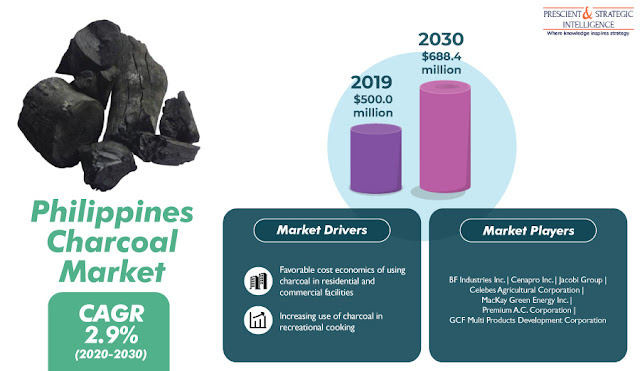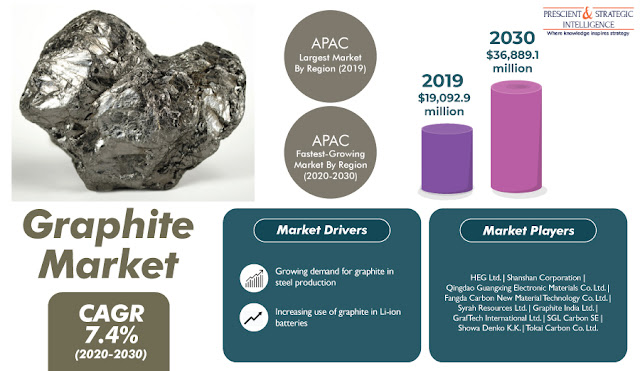Cost-Effectiveness of Charcoal Boosts Its Usage in Philippine Households
Commercial and residential installations in the Philippines opt for charcoal owing to its traditional favorability, affordability of stoves and accessories, easy availability than coconut shells and wood, low cost, and taste favorability in comparison to other fuels. Low-income households, as well as upper-income groups, witness a high adoption of this conventional fuel source owing to the aforementioned reasons. Moreover, the surging requirement for products that create activated carbon will boost the usage of charcoal in the coming years.
Moreover, the changing food preferences of the people will drive the Philippines charcoal market at a CAGR of 2.9% during the forecast period (2020–2030). The market generated revenue of $500.0 million in 2019, and it is expected to reach $688.2 million by 2030. Individuals are increasingly consuming barbecued food owing to the changes in their taste preferences and adoption of new cooking styles. As a result, the installation of live barbecue stations at restaurants and households will propel the demand for charcoal in the foreseeable future.
Based on application, the Philippines charcoal market is divided into cooking fuel, metallurgical, filtration, industrial, and others, which includes pharmaceutical, medical, automotive, horticulture, and arts. Among these, the cooking fuel division dominated the market during the historical period (2014–2019) because of the deep-rooted association of the fuel with the country’s culinary culture. Charcoal produces a weak smell and sufficient heat and is easy to produce, which is why it is preferred for cooking purposes.
In recent years, key players in the Philippines charcoal market, such as BF Industries Inc., GCF Multi Products Development Corporation, Cenapro Inc., Premium A.C. Corporation, Celebes Agricultural Corporation, MacKay Green Energy Inc., and Jacobi Group, have expanded their product portfolio to meet the surging demand. Other players are mostly small-and medium-scale businesses offering green charcoal to adhere to the environmental norms laid down by the government and international organizations. The presence of a large number of small companies also makes the market fragmented, thus offering the established companies opportunities to make inroads.
Thus, the easy availability and low-cost of charcoal will fuel the demand for this conventional source in the future. Moreover, the surging reliance on traditional stoves and new cooking methods, such as barbecue and grilling, will amplify the consumption of this carbon-rich product in the country in the coming years.
Source: www.psmarketresearch.com



Comments
Post a Comment